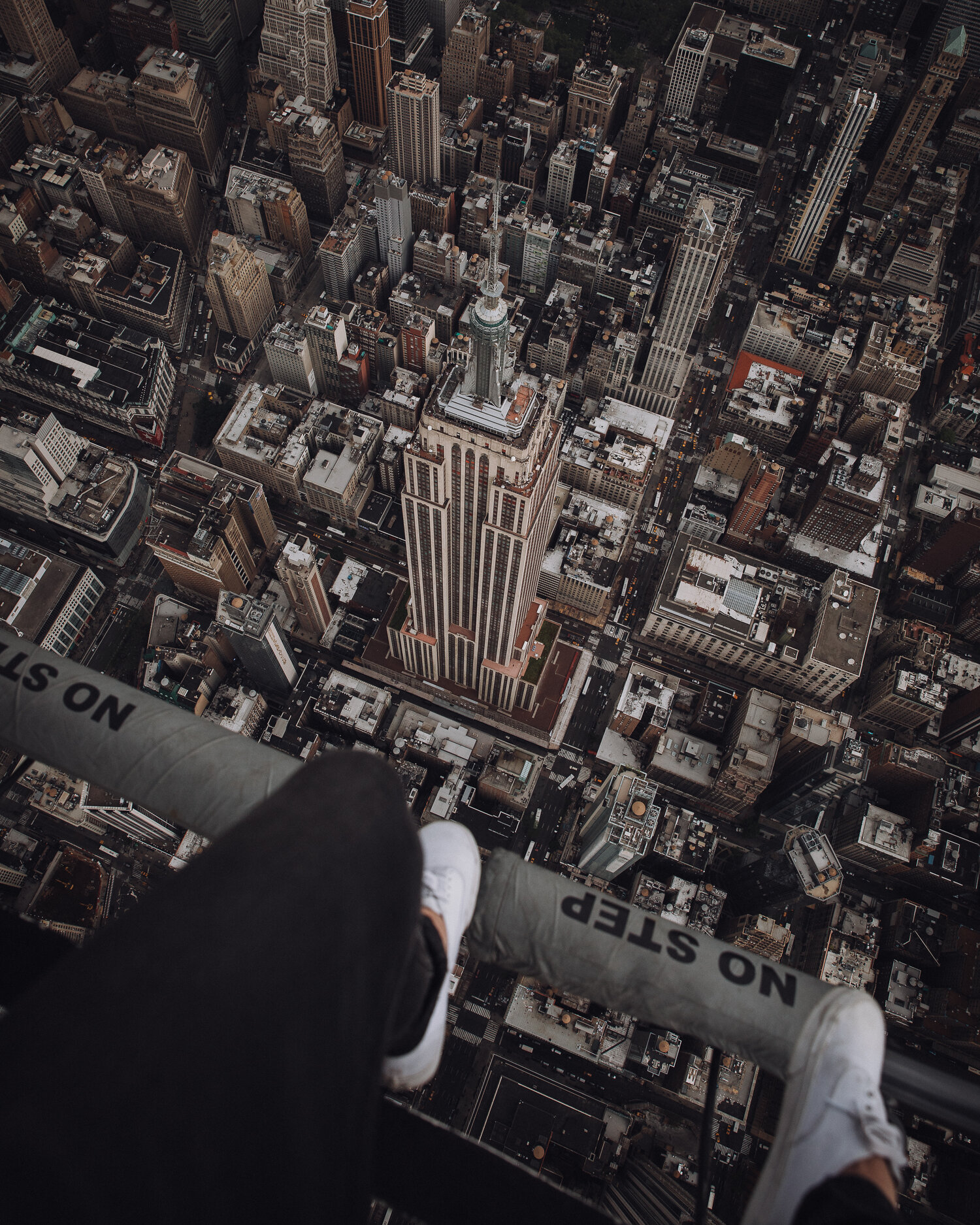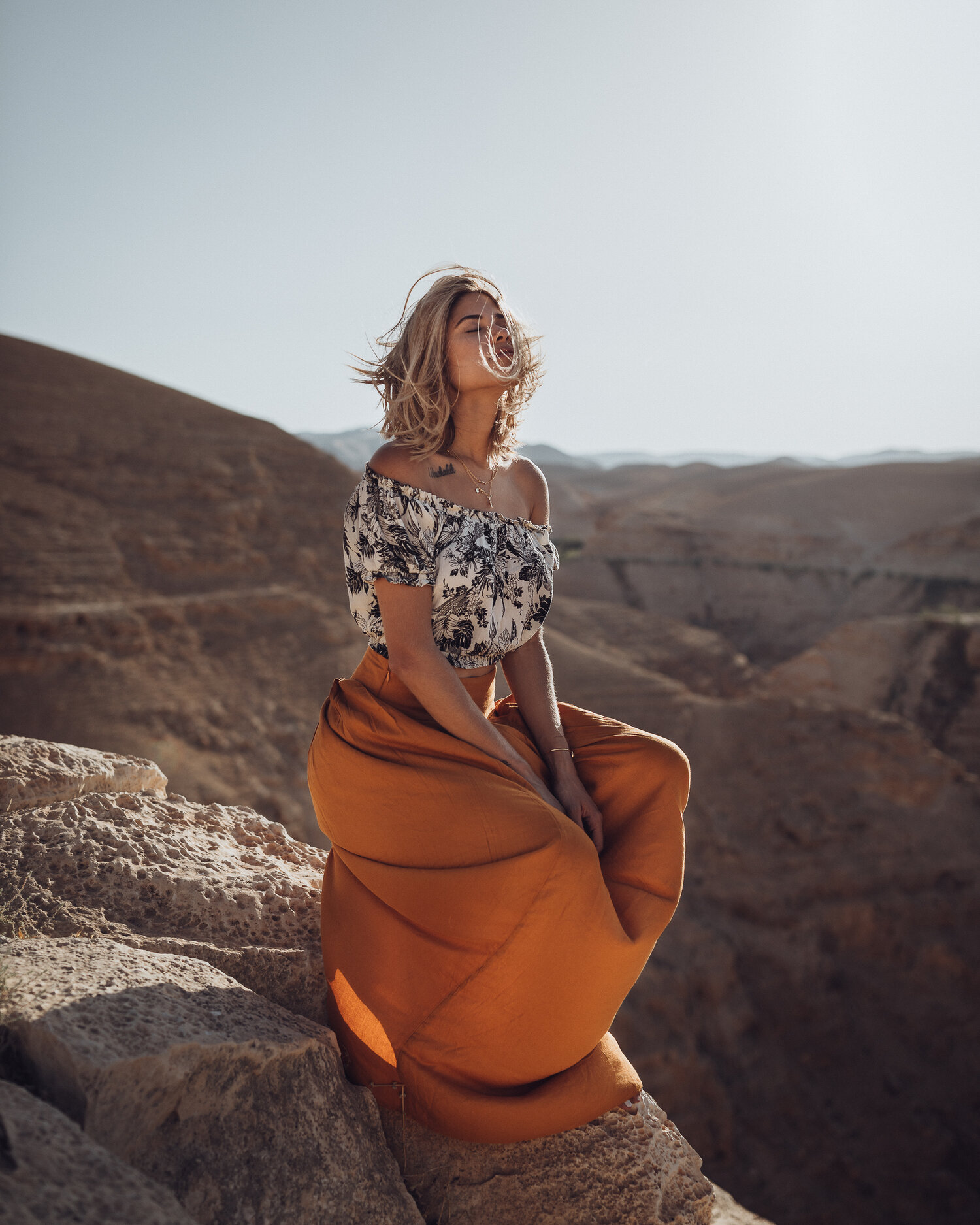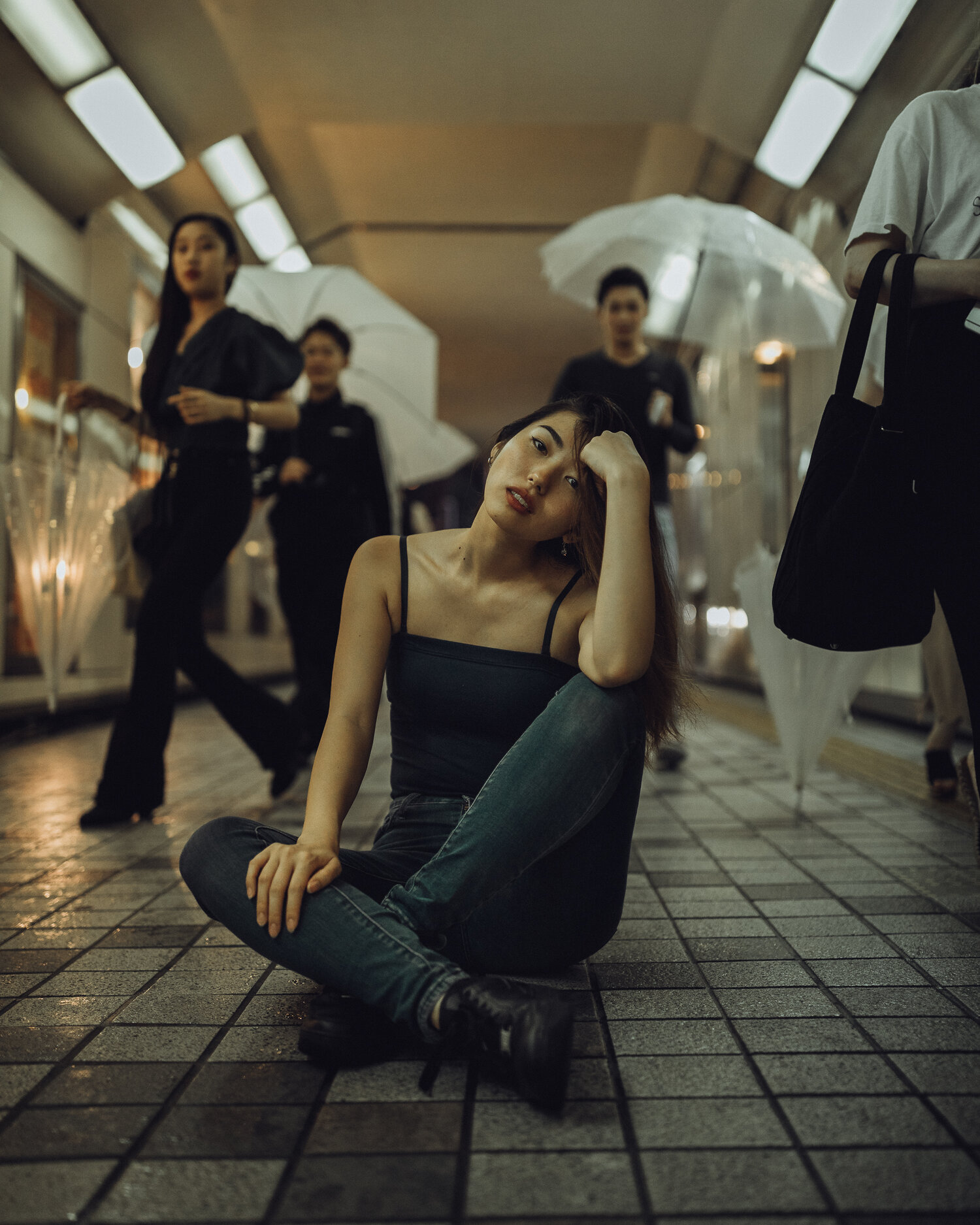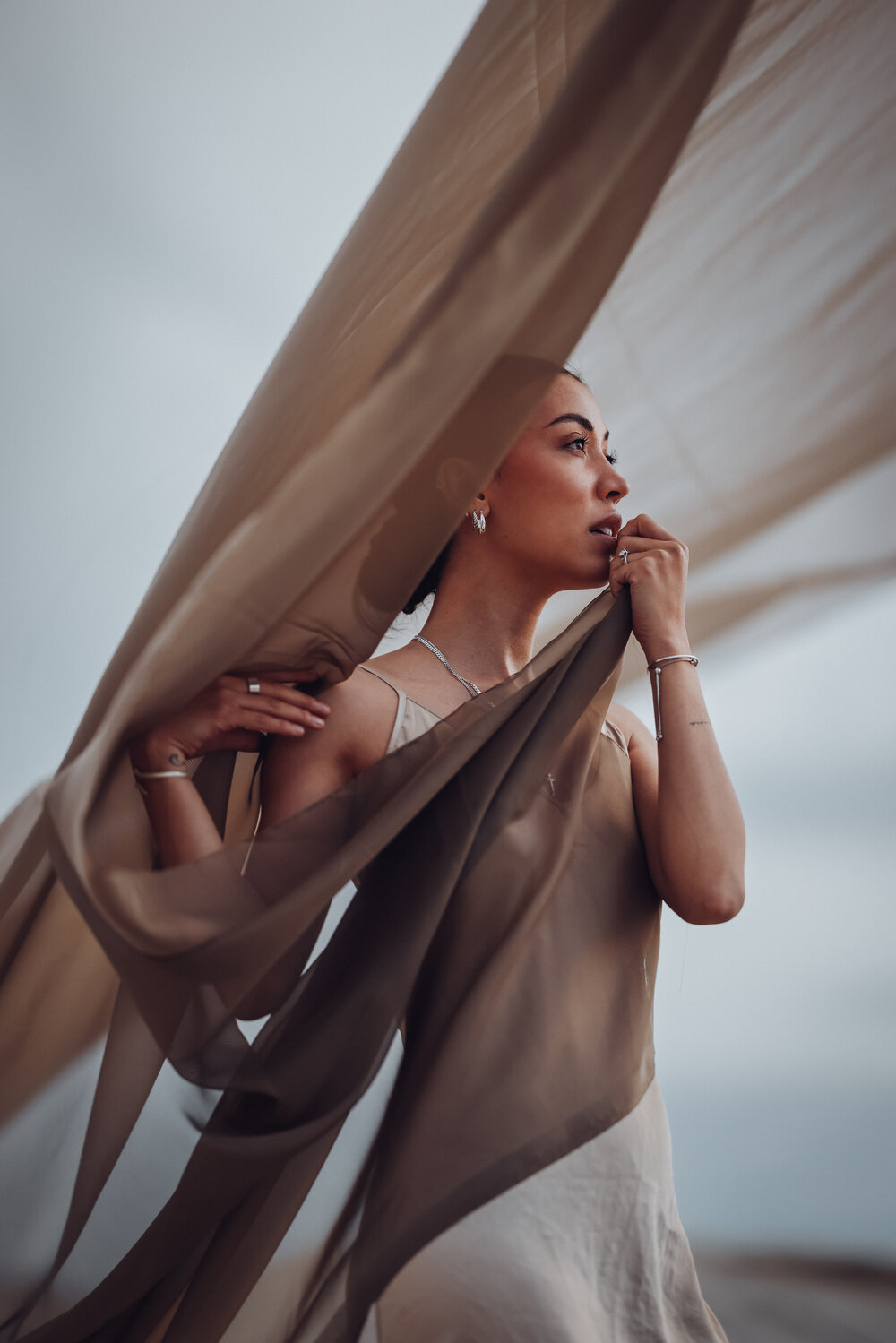How Much Does a Wedding Photographer Make?
Education
By Kyle Wilson
Jonathan Zoeteman is a Canadian lifestyle, portrait, and travel photographer who shares his passion for supporting other creators through the Socality creative community and as a Canon Ambassador. He chats with Kyle about the creative process and the importance of community, authenticity, and continual growth.
KW: Jonathan, you have an interesting journey. Let's start with your approach to photography.
JZ: I generally avoid shooting weddings. I’m more on the editorial creative side. I love telling stories with visuals and working with other creators like musicians and artists. Much of my day-to-day work is co-leading Socality, a creative community organization based in Calgary. We do stuff all over Canada and the States, but we got more local after Covid. That coincided with an opportunity to work with Canon.

KW: The fact that Canon sees the value in your work is a huge token to say how great you are, what you're doing.
JZ: I've had lots of people ask, how do you become an ambassador or get different brands to notice you? It's less about taking a good photo and more about what a brand needs. What value do you bring? For Canon, we met a need on the community-building side.
KW: What do you think is the biggest need in the creative community right now?
JZ: The biggest need is financial sustainability. Creators who are more established are trying to avoid being on the cycle of uncertainty that comes with freelance work. So we find ways to connect people and bring their knowledge together. Who you know makes such a difference.
KW: What are the hurdles for people on the cusp of turning it into a full-time, financially stable business?
JZ: There are many layers to that. I’ve seen many creators marketing themselves through TikTok, and they’re growing. But not everybody has the desire or confidence to build that kind of stuff. I’ve never felt like I wanted to do talking head reels or put myself as the major personality for my brand. For me, it was always the art first. Do I have to do it because someone else is seeing success with it?
KW: The amount of work it takes to try to carve yourself out a little spotlight is just so much.
JZ: It’s overwhelming if you’re looking at everyone else. If you're in the exploratory phase, put zero expectations on it and just make a bit of everything. Jump in, say yes, let it be fun. Align with people a few steps ahead of you and build those relationships because you’ll accelerate quicker when you can bounce things off them and learn from them.
KW: I was a yes man for the first few years of my business. I did not have the luxury of saying no for a long time.
JZ: I see it as two seasons in life for most of us. We have Yes seasons and No seasons. You say yes to almost everything because it’s exploratory, and you’re in a growth window where your creativity is fresh. That, for me, was in the early years. Then, when you get a bit established, you have to say no to lots to see growth from that place. Then, there’s another cycle of stagnation and creative discomfort. The minute we stop growing or discovering, that’s where discomfort comes in. I’ve seen a lot of people who are passionate about their creativity but maybe there wasn’t the opportunity to further open doors or inject another cycle of discovery, and it can just die.

KW: An artist friend asked why I didn’t have a solo exhibition with my portrait pieces. And I didn’t even know that was possible for me. That’s the new thing I’m trying to figure out. It’s a whole new lane.
JZ: A lot of photographers are similar to a director, right? We're an artist, and there's a vision and something that needs to come out. It can be frustrating if it just resides in the commercial or service-oriented space and never gets the space to actually start to work.
KW: Shifting from a business mindset to a creative or artistic one has always been foreign to me.
JZ: I've spent the last few years putting my photography and art aside as we've built Socality. But even in the seasons where you don’t have the creative output to show for it, you’re still growing. We forget how much of our life, experiences, and conversations, and all of that is material that we can draw on and pull from to tell better stories. The books we're reading, the content we're consuming, the stuff that is meaningful to us. We forget how much of our own personal story matters. That is the stuff that’s the most relatable. It’s the stuff created out of our pain or our struggle. The stuff we’re going through often resonates more with people, but we’re so scared of showing that.
KW: It's about being as public as you can about, yeah, this job is neat, but the other side is the pressure and time and navigating all this while trying to look happy online to sell work and have people book me.
JZ: The common thread is everyone goes through this stuff. There are blips of authenticity. We intellectually know other people go through this stuff, but we’re shown that everybody else is doing fine or succeeding and you’re behind.

KW: I’m comparing my private defeats to these people’s public successes. And that is never going to work in my favor. I want to be inspired and influenced by these other artists, but there needs to be a boundary.
JZ: I think we’re all on that journey. I get the opportunity to engage with a lot of creators through our podcasts, workshops, or events, and everybody’s got different things, but we’re all in this together. That's the beautiful thing: we can consistently create more space in these public forums to be vocal, transparent, and honest. It’s so easy to get in the cycle of the next thing and the next thing and not create enough margin to stop and be with the people who matter and have conversations about what we really want. I want to live a life that inspires the people around me. Because there are lots of people who build a whole platform on “being authentic” and talking about stuff…it’s just content that sells.
Approach a relationship with an actual give-first mentality, as opposed to What can I get from everybody? Who are the people I should be surrounding myself with, and how can I bring so much value to them that the return is natural? That’s how I’ve tried to live my life: just give everywhere. It’s an abundance mentality where it’s not a contractual or conditional thing. I've got space and care and can support you or point you in the direction. And you don’t know where those people you give freely to end up, but I have seen the full circle where you watch their growth trajectory, and years later, they’re the ones bringing you along on something.
KW: Pay it forward.
JZ: We’re on the same page.

Check out Jonathan’s captivating work on Instagram (@jonathanzoeteman) and connect with the Socality creative community for inspiration and opportunities.
This interview has been edited and condensed. Check out “The Photographer’s Problem: A Narrative Podcast” streaming now on YouTube or Spotify for the full, unedited interview and more inspiring stories and an immersive look into the intricate world of photography.